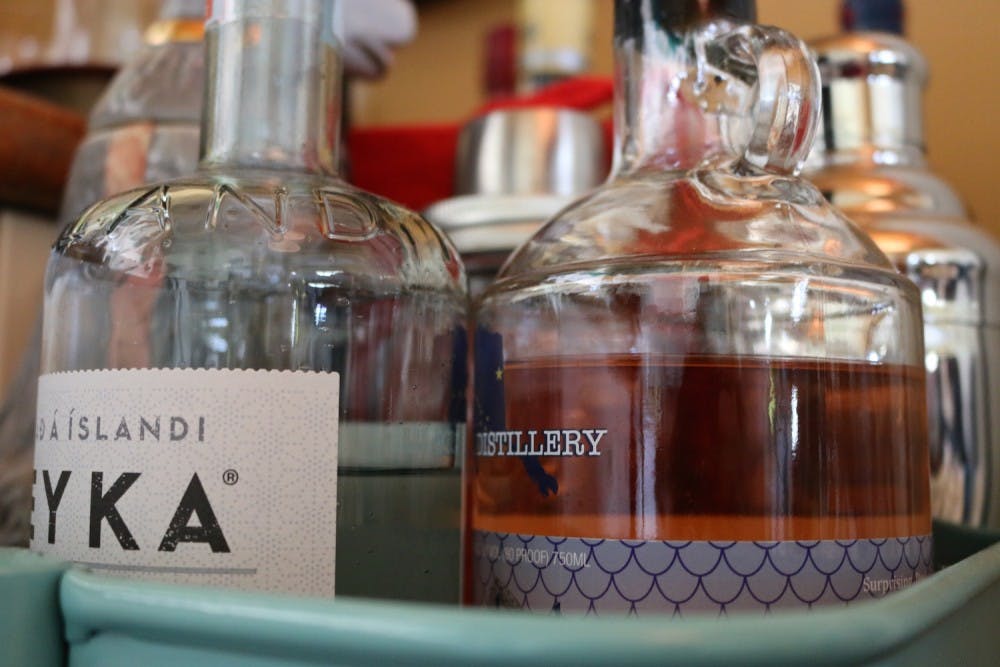The proposal for a new alcohol policy, recently accepted by the University Senate and on track for review by the Board of Trustees, is a wonderful first step toward a university that listens to its students.
This student-led effort, which has been applauded by staff, faculty, administrators and alumni alike for its comprehensiveness, appropriately cultivates a campus community that consumes alcohol responsibly, while still respecting the legal right of students over the age of 21 to consume alcohol.
We of the Otterbein360 editorial staff would like to add our congratulations to the outgoing student senate body for their hard work developing the policy, and hope that if approved by the Board of Trustees, the policy continues to grow under the guidance of the student senate-elect.
To that end, and with the understanding that built into the new policy is a system by which it can be reviewed and refined over time, we would simply like to provide our commentary on the current policy, to be discussed in its future revisions.
The guidelines outlined in the policy are specific, and ignorance of them could result in unintentional violations by unaware students.
No theme within the guidelines is more apparent than the prevention of binge drinking. However, some of the policies are so specific that students, who could potentially hear nothing more than that alcohol is now allowed in certain areas, may unintentionally break those rules out of ignorance.
For example, the restriction of specific quantities of alcohol per student to two six packs of beer, one 1L liter bottle of wine, or one 750mL bottle of 42-proof spirituous liquor could potentially be broken by a student a student who, intending to save money, purchases a case of beer to drink, responsibly, over a long period of time.
After the proposal passed in Senate, Then-Vice President of the Otterbein University Student Government Connor Dunn, said the details of the policy would be communicated to members of the Otterbein community through all possible channels. However, the policy isn’t set to be reviewed until the next Board of Trustees meeting, which takes place after final exams. Dunn, a graduating senior, will not be around to see the policy implementation through in person.
There is not necessarily reason to doubt that news of the policy will be spread accurately and effectively to all members of the student body (including incoming first years), and some responsibility lies on the students to read the policy before consumption. However, student government share a responsibility to inform these students of the details, so as to avoid unnecessary punitive actions by the university against people who were unaware they were breaking any rules.
These guidelines will for many be the environment in which they establish alcohol-related habits for the rest of their lives, but those habits might not all be for the best.
Learning to drink alcohol in moderation is a valuable life lesson that would complement the university’s efforts to educate the whole student. Yet, the guidelines seem to encourage, by prohibiting alternatives, that students drink largely alone and in their rooms.
When we imagine responsible drinking, a few specific things come to mind: drinking with friends at a social event, maybe at a bar or at home, having a glass of wine with dinner or a few beers during a football game with friends. Almost all of these scenarios require prohibited glasses of various kinds, and almost all of them are excluded from the acceptable scenarios to drink under the proposed guidelines.
As the proposal currently stands, students are allowed two guests each while consuming alcohol, and the alcohol may not leave their living area. There is no mention of the possibility of allowing alcohol in university cafeterias, and sporting events are explicitly listed as alcohol-free. Additionally, while nearly all forms of student housing are enumerated in the policy’s implementation timeline, Greek housing is left out.
The collective effect of these policies is to create a culture where students learn to drink alcohol alone in their rooms. It consistently seems that the more communal an event, the harder it is to drink, and the more isolated the student, the easier. This is particularly exacerbated by the rules preventing the advertising of alcohol even at events in which it is allowed.
While the effort to keep alcohol out of the community’s social spotlight is clear and perhaps even effective, issues could arise from students who arrive at an event only to unexpectedly find alcohol. It would hardly be unheard of for a student or one of their family members to be a recovering alcoholic. By forbidding references to alcohol in postings that advertise events where alcohol may be present, individuals who are trying to avoid alcohol could unknowingly attend an event that allows it.
That being said, these policies still indicate a bright future for Otterbein as an example of active student influence over their futures and that of the school.
We simply wish to reiterate that this commentary is only designed to aid in future revisions as the policy, if accepted by the Board of Trustees, is implemented and reviewed.
Overall this policy is well intended, and it is a step in the right direction for Otterbein. It has the potential to set the precedent for a joint governing of Otterbein’s future in which the students not only speak up, but know that if they put in the proper effort, people will listen.
The senate has done their part, and hopefully with this commentary we of Otterbein360 have done ours. Now, it’s up to the Board.








